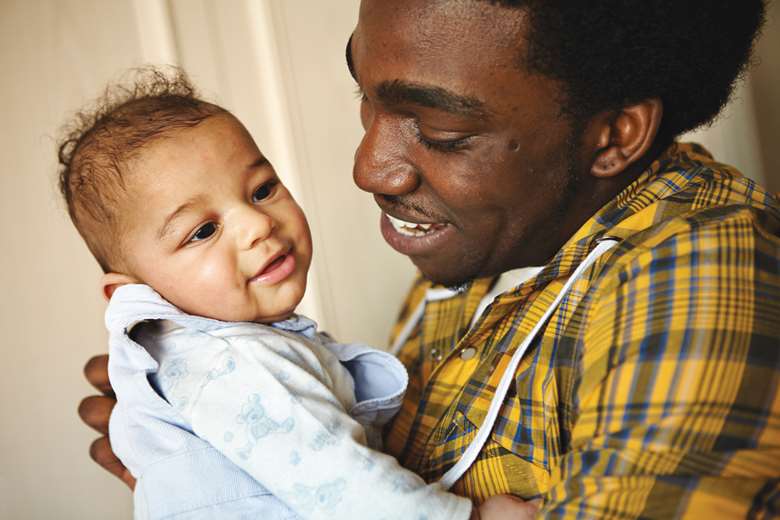How informative DVD helps new parents cope with crying babies
Emily Rogers
Monday, June 23, 2014
DVD helps parents to cope with their baby's crying and reduce incidents of non-accidental head injuries to babies.

Project
Coping with Crying
Funding
£17,000 from the NSPCC
Background
Non-accidental head injury, typically caused when a baby is shaken or thrown, is the leading cause of abuse-related death and disability in babies. At least 200 under-ones are thought to be victims in the UK each year and about a quarter of them will die as a result. Excessive crying is a known trigger for such abuse.
As part of a review of strategy in 2009, the NSPCC decided to redouble its efforts to protect babies from this risk, by scouring the world for the most effective prevention strategies.
Its researchers were inspired by a hospital-based education programme in the US and decided to use it as a model for a new UK project. "The scale of the impact and the simplicity of the intervention made it a bit of a no-brainer," says development manager Sally Hogg.
Action
The charity's communications team produced a 10-minute DVD and accompanying information leaflets, warning parents about the dangers of shaking babies and providing them with coping strategies for when their baby cried persistently.
The next task was finding hospitals and birthing units to show the film to parents. The 24 selected all served large populations, had heads of midwifery who were supportive of the project and NSPCC service centres nearby, enabling close liaison between charity staff and midwives.
NSPCC staff went into the hospitals and delivered half-hour training sessions to midwives, introducing them to the DVD and guiding them in how to raise this issue with new parents and deal with requests for extra support.
In January 2012, midwives started showing the film to women who had just given birth and their partners. The proportion of parents reached in hospitals varied widely from around 10 per cent to 80 per cent and Hogg says the project was hampered by the "incredibly fast" discharge times in some hospitals.
It was seen by 30,000 parents in all. "We told midwives the film needed to be seen by as many parents as possible and they shouldn't target it at anybody," says Hogg. "It's important this message is not stigmatised and for parents to realise they're normal in feeling frustrated when their babies cry."
The project is now being extended to 19 areas of the UK, where it will be shown to an estimated 50,000 parents or parents-to-be by September next year in a wider range of community settings, such as children's centres, antenatal classes or during post-natal home visits.
Outcome
The American scheme that inspired the NSPCC project led to a dramatic reduction in cases of abusive head injuries to babies.
Incidents fell by 47 per cent from 41.5 cases per 100,000 live births to 22.2 cases per 100,000 live births as a result of the five-year project to educate new parents in hospital straight after their child's birth.
The impact of the UK scheme was assessed through a telephone survey of parents who had seen the film between six and nine months earlier. Interviews took place between July and September last year with 428 parents who had seen the DVD and with a control group of 1,165 parents, whose babies were born at the same time but had not seen the film. Ninety-nine per cent of those who had seen the film remembered it and 82 per cent reported they had used at least one of its tips for coping with crying, such as putting the baby down and going into another room.
Parents who saw the DVD were more likely to agree with the statement that you should not handle your baby roughly - 72 per cent of them strongly agreed compared to 66 per cent of those who had not seen the film. Parents were asked if their babies had ever needed medical attention for an injury. Of those who had not seen the film and had "difficult" babies, such as those with sleeping or feeding issues, seven per cent said injuries had occurred, more than three times the two per cent recorded among parents who had seen the film.




